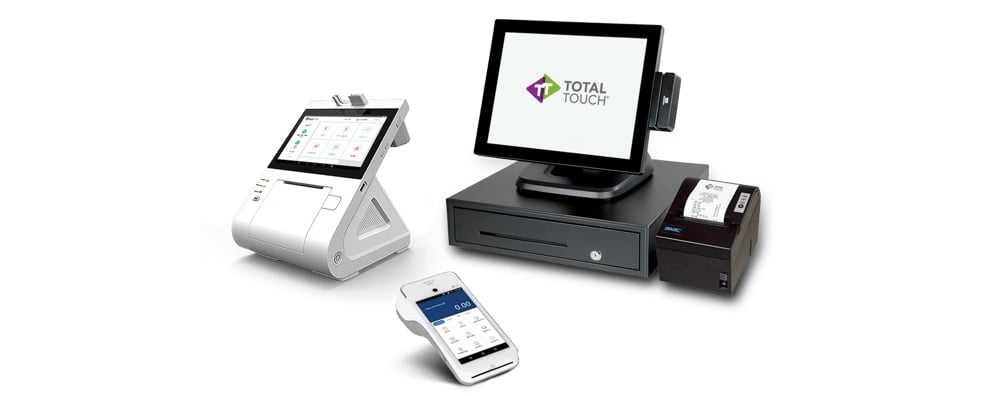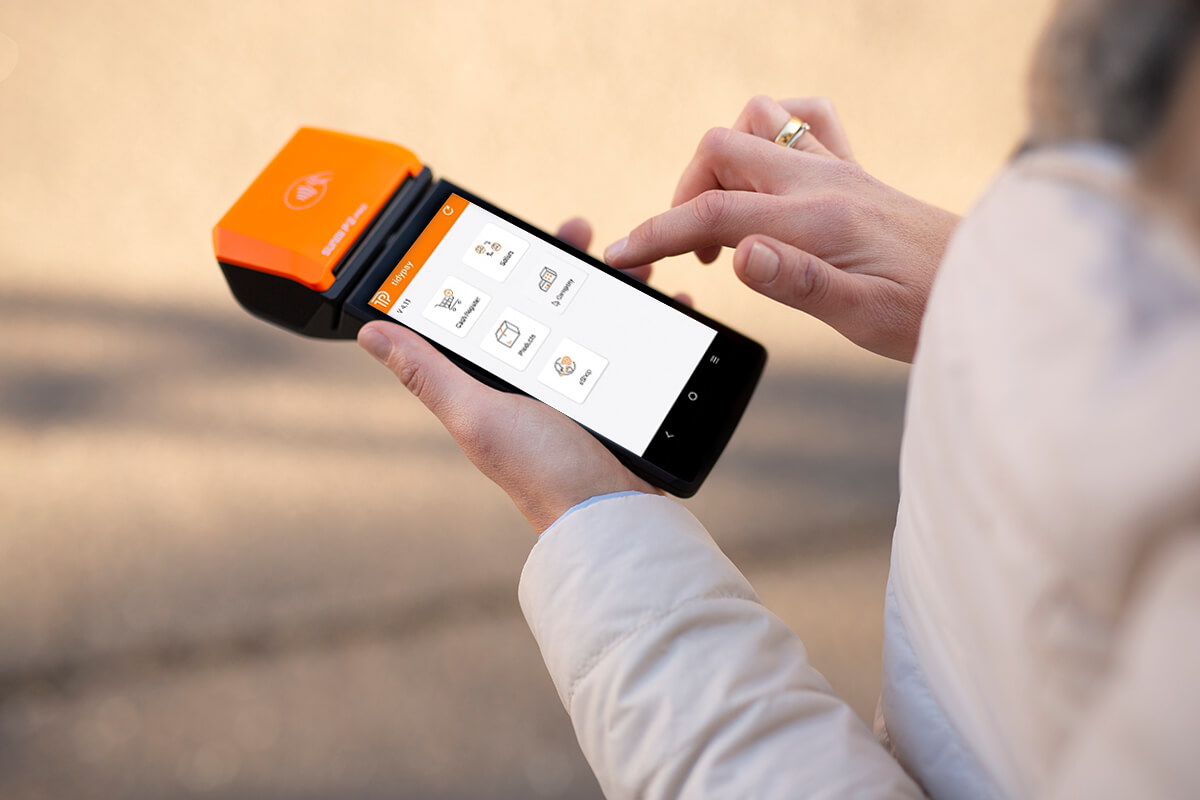How Clover Pos can Save You Time, Stress, and Money.
Examine This Report about Pos System For Small Business

Point of Sale Systems: Retail Point-Of-Sale Solutions Streamline Deals
The Main Principles Of Pos Machine

Hardware Elements of a Point of Sale System What makes a read more POS system tick? It's not simply software; the hardware plays a starring role. Think of it as the body to the software application's brain. Without the right hardware, even the most advanced POS software is simply a pretty face. Vital POS Hardware So, what are the must-haves? Let's break it down. The central processing system, often a computer system or tablet, is the heart of the operation. The screen or touchscreen display permits staff to interact with the system. A barcode scanner accelerate the checkout process. Keep in mind the days of manually going into each code? The dependable receipt printer provides clients with a record of their purchase. A cash drawer keeps your money safe and organized. A card reader allows consumers to pay with credit or debit cards. Diving Deeper: Beyond the Essential However wait, there's more! Depending on your company, you may need customized hardware. A dining establishment may integrate kitchen printers to relay orders, while a retail shop may use label printers for product tagging. Ever wonder how your local bakeshop quickly prints those delicious-looking labels? Selecting the Right Hardware: A Balancing Act Selecting the best hardware isn't simply about buying the most costly equipment. It's about discovering the sweet spot in between performance, resilience, and budget. A small company simply beginning out might select a more basic setup, while a high-volume retailer will need robust, high-performance machines. Is it better to purchase new or used? Consider your options carefully. A new system uses the most recent technology and warranty defense, however a refurbished system can conserve you cash. The Future of POS Hardware What does the future hold? Expect to see much more combination with mobile devices, biometric scanners for employee authentication, and advanced analytics control panels showed on larger, clearer screens. Picture a world where inventory is instantly upgraded in real-time as items are scanned-- a world where you can track your best-selling product from throughout the world. The possibilities are endless, and the hardware is continually evolving to satisfy the demands of today's businesses. Are you ready to upgrade your point of sale system?
Software Application Characteristics and Capabilities: The Heart of Your POS System
Ever view an experienced barista glide through a hectic early morning rush? Their secret isn't just caffeine; it's a seamless dance with their POS system. The software application is the conductor of your organization symphony, orchestrating whatever from sales to inventory. However what notes should you be listening for? What abilities truly matter in today's market?
Stock Management: Beyond Counting Beans
Forget spreadsheets that haunt your dreams. Modern POS systems offer real-time inventory tracking, alerting you when your stock of artisanal coffee beans dips precariously low. Think of it as a digital guardian angel, preventing those uncomfortable "Sorry, we're out!" minutes to consumers. What if you could likewise forecast demand based on historic information? Lots of systems now provide forecasting tools, an effective weapon against overstocking and lost sales. This helps prevent the predicament of running out of popular products or collecting excess stock of slow-moving items, both of which can constrain money flow and space.
Sales Reporting and Analytics: Decoding the Information
Sales data is the new gold, and your POS system is the miner. Forget feeling in one's bones just how much you sold today. Dive deep into the information to uncover patterns, recognize your very popular items, and comprehend consumer behavior. Which menu product pairs perfectly with the day-to-day special? Which promo resonated most with your customers? These insights are not simply fascinating; they're actionable intelligence. Without reliable sales reporting, browsing the intricacies of service decision-making ends up being like cruising without a compass, increasing the opportunity of missteps and missed out on opportunities.
Customer Relationship Management (CRM): Building Bridges, Not Walls
Remembering a regular client's name and favorite order is charming, but scaling that individual touch is difficult. POS systems with CRM capabilities allow you to track consumer purchase history, choices, and even birthdays. Envision immediately offering a discount rate on their birthday-- a little gesture that fosters loyalty and encourages repeat organization. There is the possible snag of poor data quality, which can lead to unreliable client profiles and inadequate marketing efforts.
Payment Processing: Improving the Transaction
The checkout experience can make or break a sale. Smooth integration with different payment methods-- credit cards, mobile wallets, even copyright-- is non-negotiable. Can your system handle split payments? Does it offer safe and secure tokenization to protect client data? A cumbersome payment process is like hitting a sour note in your company symphony, possibly disrupting the whole performance. Making sure compatibility with evolving payment technologies and adherence to security standards are paramount for keeping client trust and functional efficiency.
Employee Management: Keeping the Team in Sync
From clocking in and out to managing authorizations and tracking performance, staff member management features enhance operations and enhance responsibility. Is scheduling a problem? Many POS systems offer integrated scheduling tools, optimizing staffing levels based upon predicted need. A common barrier that is typically neglected is the difficulty of incorporating worker management performances with payroll systems, which can result in errors and ineffectiveness in wage estimations.
Advanced Characteristics: Leveling Up Your Operations
- Table Management: Perfect for dining establishments, this feature enables you to envision your dining-room, track table status, and manage appointments.
- Loyalty Programs: Reward your best clients and motivate repeat service with integrated loyalty programs.
- Online Purchasing Combination: Effortlessly integrate your POS system with online buying platforms to expand your reach.
Picking the right POS system is about more than just functionality; it's about discovering a partner that can grow with your service. Consider your present requirements, expect future growth, and do not hesitate to ask the tough concerns. The best software can change your business from a disorderly cacophony into an unified masterpiece.
Industry-Specific POS System Applications
Consider the local bakeshop, busy with early morning customers craving fresh croissants. A generic POS system might deal with deals, but can it handle complicated recipes, track active ingredient stock, or automatically adjust production schedules based on sales data? Probably not. That is where the charm of industry-specific POS systems shines.
Restaurants and Hospitality
For busy dining establishments, speed and accuracy are critical. How lots of times have you seen servers handling orders, modifications, and splitting expenses, all while trying to supply outstanding service? A dining establishment POS system enhances these processes, enabling table management, cooking area order tickets, and even online ordering integration. These systems typically include functions like ingredient-level inventory tracking, important for handling food costs and reducing waste. Ever question why your preferred dish is in some cases unavailable? It may originate from an absence of proper stock management.
- Table Management
- Cooking Area Order Tickets
- Online Purchasing Combination
- Ingredient-Level Stock Tracking
Retail Solutions
Retail, with its diverse stock and consumer interactions, requires a various set of tools. Envision a store clothing shop having a hard time to keep an eye on sizes, colors, and seasonal collections using a standard checkout system. An industry-specific retail POS system uses features like barcode scanning, consumer commitment programs, and comprehensive sales reporting. These systems can even integrate with e-commerce platforms, offering a smooth omnichannel experience for clients. Did you know some retail POS systems can anticipate future sales trends based on historic data? Now that is effective!
The Perils of an Inequality
Picking the wrong POS system can create significant functional difficulties. A clothes boutique using a dining establishment POS, for instance, would discover it unsuitable for handling stock with sizes and colors. The absence of correct reporting and analytics could lead to mistaken buying decisions and lost revenue. The result might be comparable to attempting to fit a square peg in a round hole.
Secret Considerations
Picking an industry-specific POS system requires careful evaluation. Consider your company's unique needs and functional workflows. Does the system incorporate with existing software application? Does it provide the needed reporting abilities? Is it scalable to accommodate future growth? A well-chosen POS system is not simply a transaction tool; it's a strategic possession that can drive performance, improve client complete satisfaction, and eventually, improve your bottom line. Remember, it is a financial investment in your service's future, not simply an expense.
Security Factors To Consider for Point of Sale Systems
Ever heard the tale of the mom-and-pop store that lost whatever since of a single, overlooked security defect in their POS system!.?. !? It's a cautionary tale, and it highlights a vital aspect often overshadowed by the allure of elegant features and streamlined operations. The truth is, a POS system is only as good as its security. What great is a system that crunches numbers in a flash if it enables crooks to swipe consumer's information just as rapidly?
The Vulnerability Minefield
The digital landscape is a battleground. Every POS system, despite size or sophistication, is a potential target. Are you truly prepared for the dangers hiding around the corner? The genuine pinch comes when you find that your outdated software has an open hole that hackers can exploit, turning your business into an unwitting accomplice in identity theft. The problem is that hackers are crafty and are always altering their techniques.
Typical Security Gaps and Professional Tips
- Weak Passwords: "Password123" isn't cutting it. Usage strong, unique passwords for all POS system accounts and change them regularly. Two-factor authentication is a must.
- Unsecured Networks: Your Wi-Fi resembles leaving the front door open. Protect your network with strong encryption (WPA3 if possible) and consider a different network for your POS system.
- Outdated Software: Software application vendors spot security holes all the time. Failing to upgrade is like inviting problem. Set up automated updates or schedule regular upkeep.
- Worker Training: Your personnel is your first line of defense. Train them to recognize phishing attempts, safeguard passwords, and report suspicious activity.
Information Encryption: Your Shield Against the Dark Arts
Believe of data file encryption as a secret code. It scrambles sensitive information, like credit card numbers, making it unreadable to unapproved users. Without encryption, your clients' monetary information are like sitting ducks, ripe for the picking by cybercriminals. It's not almost safeguarding your customers; it has to do with safeguarding your track record and preventing hefty fines.
PCI Compliance: The Rulebook You Can't Disregard
If you accept credit cards, you're bound by the Payment Card Industry Data Security Standard (PCI DSS) It's a set of security requirements created to secure cardholder information. Failing to comply can lead to fines, penalties, and even the loss of your capability to process charge card payments. It's a headache, yes, however it's a necessary one. Think about PCI compliance as the expense of doing company in the digital age.
Consider this: every transaction processed through your point of sale is a potential entry point for harmful actors. By executing robust security steps, you're not just safeguarding your company; you're safeguarding your consumers' trust and guaranteeing the long-term viability of your operations. The security of your POS system isn't simply a technical issue; it's a business crucial. It needs constant watchfulness, proactive measures, and a commitment to remaining ahead of the curve.